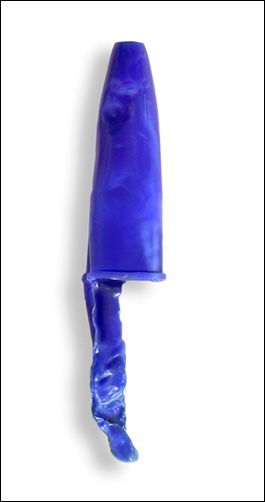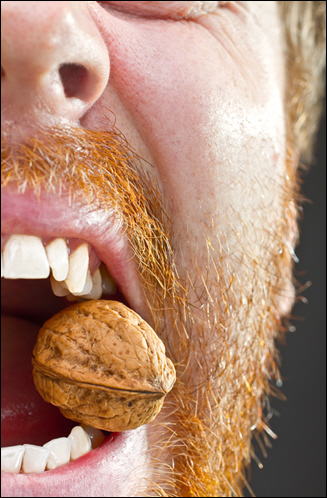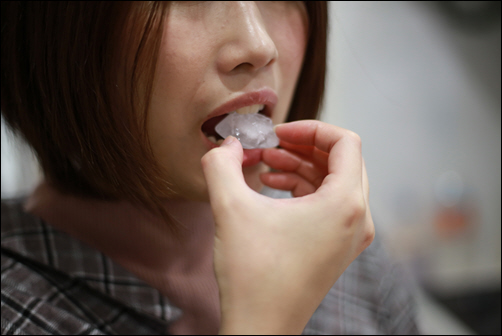Avoid Tooth Damage from Chewing on Hard Objects
Chewing on hard objects like ice, hard candy, pens, and nuts may seem harmless, but these habits can cause serious tooth damage over time. Biting down on hard items can lead to chips, cracks, and even fractures that compromise your oral health. By understanding the risks associated with these habits and taking steps to avoid them, you can protect your smile and maintain strong, healthy teeth.
Why Chewing on Hard Objects Damages Teeth
Our teeth are designed to withstand the force of regular chewing, but certain hard items place excessive stress on enamel, the protective outer layer of our teeth. When you bite down on a hard object, the force exerted can cause small fractures or chips in the enamel. Even if tooth damage isn’t immediately visible, repeated pressure weakens the enamel, making it more prone to cracks and sensitivity. Once the enamel is compromised, bacteria can infiltrate the tooth, increasing the risk of decay and other issues.
Common Culprits of Tooth Damage
 Several common habits can contribute to tooth damage:
Several common habits can contribute to tooth damage:
- Chewing Ice: Ice is one of the hardest substances you can chew, and its sharp edges easily chip enamel. The cold temperature also causes teeth to contract, increasing the risk of fractures.
- Crunching Hard Candy: Hard candies may seem tempting to chew, but they’re dense and unforgiving on teeth. Sucking on candy is safer, but it still introduces sugars that can contribute to decay, so it’s best to enjoy these treats in moderation.
- Biting Pens and Pencils: Many people chew on pens or pencils out of habit or nervousness. The hard plastic or wood can chip teeth or create small fractures over time.
- Nuts with Hard Shells: While nuts themselves are healthy, cracking open shells with your teeth can do serious damage. Opt for pre-shelled nuts to enjoy the health benefits without risking your teeth.
- Popcorn Kernels: Accidentally biting down on an unpopped kernel can result in a painful, unexpected crack or chip. It’s best to check for any unpopped kernels before enjoying a handful of popcorn.
Protecting Your Teeth from Damage
 Avoiding these damaging habits can significantly reduce your risk of tooth fractures, chips, and wear. Here’s how to protect your teeth:
Avoiding these damaging habits can significantly reduce your risk of tooth fractures, chips, and wear. Here’s how to protect your teeth:
- Find Alternatives: If you’re in the habit of chewing on pens or ice, replace them with safer options. Chewing sugar-free gum can help satisfy the urge to chew without putting stress on your teeth.
- Eat Mindfully: Take smaller bites and avoid using your teeth as tools to open packages or crack nuts. Focus on eating softer, tooth-friendly foods and break hard items into manageable pieces before chewing.
- Be Cautious with Hard Snacks: Enjoy hard foods like nuts, popcorn, and crunchy snacks carefully, and avoid biting down too forcefully. When in doubt, choose pre-shelled nuts or sliced fruits and veggies to avoid unexpected pressure on your teeth.
- Regular Dental Checkups: Regular dental exams help catch any signs of tooth wear or small fractures early on. Your dentist can monitor your enamel’s health and offer advice on protecting your teeth.
Invest in Strong, Healthy Teeth
By avoiding hard objects and choosing safer alternatives, you can protect your teeth from unnecessary damage requiring restorative dental repairs. Breaking these habits may take time, but the result—a strong, undamaged smile—is worth the effort. Protecting your teeth from unnecessary wear and tear now will save you from costly and uncomfortable dental repairs down the line. Remember, your teeth aren’t tools—treat them with care, and they’ll keep your smile bright and healthy for years to come.



